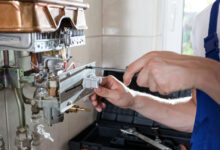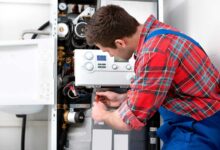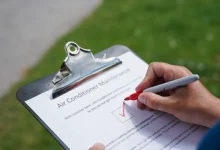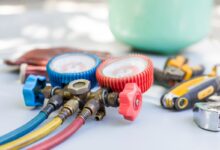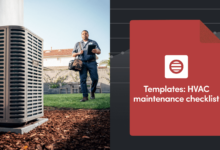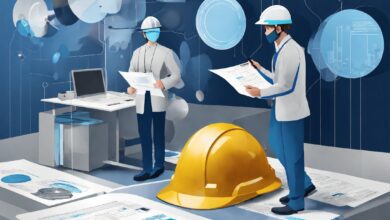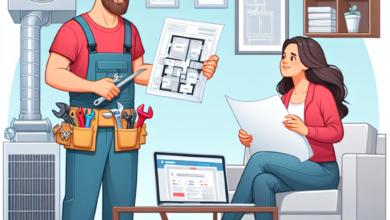The Importance of Regular HVAC Maintenance for Energy Efficiency
Regular HVAC maintenance is essential for maintaining optimal energy efficiency in buildings. It can reduce energy consumption, lower utility bills, and extend the lifespan of the equipment. This article explores the crucial benefits of HVAC maintenance, discusses its frequency, and provides guidelines for creating a maintenance plan.
Proper heating, ventilation, and air conditioning (HVAC) systems are vital for maintaining comfortable indoor environments. However, without regular maintenance, HVAC systems can lose efficiency, leading to higher energy consumption, increased utility bills, and premature failure. A comprehensive maintenance plan is essential to ensure your HVAC system operates at peak efficiency, saving you money and enhancing your overall comfort.
1. How often should I have my HVAC system maintained?
For residential properties, it is recommended to have your HVAC system inspected and serviced twice a year, once in the spring and once in the fall. Commercial properties may require more frequent maintenance, depending on the size and complexity of the system.
2. What are the benefits of regular HVAC maintenance?
- Improved energy efficiency
- Lower utility bills
- Longer equipment lifespan
- Enhanced indoor air quality
- Reduced risk of breakdowns
3. What should be included in an HVAC maintenance plan?
- Filter cleaning or replacement
- Coil cleaning
- Refrigerant level check
- Thermostat calibration
- Belt and pulley inspection
Improved Energy Efficiency
HVAC systems are responsible for a significant portion of energy consumption in buildings. Regular maintenance can significantly improve energy efficiency by:
- Ensuring clean coils: Dirty coils reduce the efficiency of heat transfer.
- Optimizing refrigerant levels: Proper refrigerant levels are crucial for efficient cooling and heating.
- Calibrating thermostats: Incorrect thermostat settings can lead to excessive energy consumption.
- Lubricating moving parts: Lubrication reduces friction and improves system efficiency.
- Checking ductwork: Leaks in ductwork can allow conditioned air to escape, wasting energy.
Lower Utility Bills
Regular HVAC maintenance helps reduce utility bills by improving system efficiency. A well-maintained system will consume less energy to maintain desired indoor temperatures, resulting in lower electricity or gas consumption.
Longer Equipment Lifespan
HVAC systems are significant investments. Regular maintenance can extend the lifespan of your equipment by:
- Preventing premature wear and tear: Maintenance identifies and addresses potential issues early on.
- Reducing the risk of breakdowns: Proper maintenance can prevent breakdowns and costly repairs.
- Ensuring proper lubrication: Regular lubrication prevents friction and reduces wear on moving parts.
- Extending refrigerant life: Regular refrigerant level checks help maintain optimal system performance and extend refrigerant lifespan.
Enhanced Indoor Air Quality
HVAC systems play a significant role in maintaining indoor air quality. Regular maintenance can improve air quality by:
- Cleaning coils: Dirty coils can harbor bacteria and mold, which can be harmful to health.
- Replacing filters: Filters trap dust, pollen, and other allergens, improving indoor air quality.
- Inspecting ductwork: Leaks in ductwork can allow contaminants, such as dust and mold, to enter the indoor environment.
Reduced Risk of Breakdowns
Unplanned HVAC breakdowns can be disruptive and costly. Regular maintenance can significantly reduce the risk of breakdowns by:
- Identifying potential issues: Maintenance inspections can identify minor issues before they escalate into major problems.
- Correcting minor problems: Addressing minor issues promptly prevents them from developing into more severe problems.
- Ensuring proper lubrication: Proper lubrication keeps moving parts running smoothly, reducing the risk of breakdowns.
- Testing safety devices: Safety devices, such as smoke and carbon monoxide detectors, should be tested regularly to ensure they are functioning correctly.
Regular HVAC maintenance is an essential investment that pays off in the long run. By improving energy efficiency, reducing utility bills, extending equipment lifespan, enhancing indoor air quality, and minimizing the risk of breakdowns, proper maintenance can help you save money, improve your comfort, and ensure a healthy indoor environment. Creating a comprehensive maintenance plan and following the recommended frequency for inspections and services will ensure your HVAC system operates at optimal performance for years to come.
